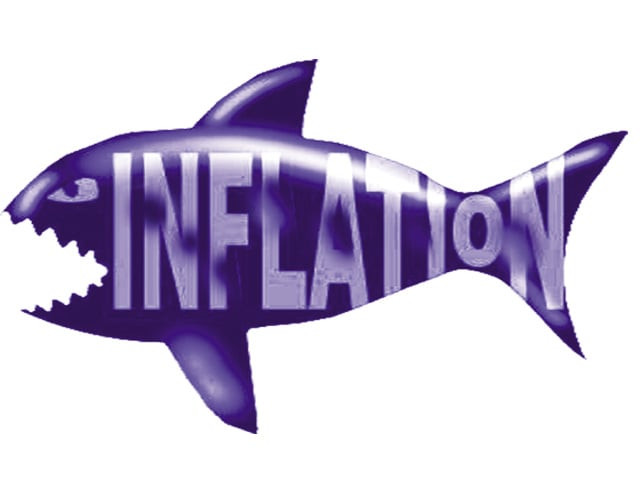Economy remains in hot waters
Agriculture and industrial sectors weaken, budget deficit may touch 6% of GDP.

Painting a bleak picture of the economy, the State Bank of Pakistan governor said budget deficit – the gap between government’s income and expenditure, will touch six per cent of gross domestic product (GDP) or Rs1.032 trillion by the end of June and debt will rise to new highs.
He was speaking during a meeting of the Senate Standing Committee on Finance and Revenue on Tuesday.
Kardar said “economic and financial positions have weakened further” as growth in large-scale manufacturing and agriculture sectors remained negative during the first quarter (July-September) of the current financial year.
He said public debt has already reached 62.5 per cent of GDP, breaching the ceiling of 60 per cent set under the Fiscal Responsibility and Debt Limitation Act 2005. “Continuous borrowing will take the public debt to 64 per cent by June,” he added.
“The economic situation is not only bad but alarming. Nonetheless, the real question remains what is the way forward,” said Senator Professor Khurshid Ahmed of Jamaat-e-Islami.
In his testimony to the committee, Secretary Finance Dr Waqar Masood said GDP growth is likely to remain at 2.5 per cent, two per cent lower than earlier projection and inflation will go up to 14.5 per cent, three per cent more than the target.
Masood said latest data suggested that the economy was slowing down while inflation is rising. “With a decrease in petroleum refining, cotton yarn production, steel and cement output, the large-scale manufacturing sector contracted 2.6 per cent in September, the first negative data since September 2009,” he said.
He said the budget deficit during the first half of the fiscal year touched 2.9 per cent of GDP (Rs496 billion). “Energy subsidies and excessive security spending caused more than the targeted budget deficit,” he added.
Masood said the revised budget deficit target would be 4.9 per cent of GDP, contesting the central bank’s projection of a six per cent gap. He said the price pressure has been the strongest since the 1970s.
Owing to floods, sugarcane production is likely to shrink to 44.5 million tons, a dip of 10 per cent over pre-flood estimates. Cotton production will remain 2.6 million bales or 10.1 per cent short of target while paddy crop was the worst affected, facing almost a 50 per cent contraction.
SBP Governor Shahid Kardar said the government borrowed Rs416.9 billion from July to December 11 to bridge the budget gap. Of that, Rs328.6 billion was borrowed from the central bank and Rs88.3 billion from scheduled banks.
He said the government will have to take certain measures to reverse the trend as it has large deposits in commercial banks and is earning a nominal interest. He said this huge sum of money could be used for productive purposes.
He said the total federal government budget financing debt stock has crossed Rs1.2 trillion. On top of that, Rs368 billion was borrowed for covering losses of public sector enterprises and Rs366 billion for commodity financing. “In total, the government has borrowed Rs1.94 trillion, which is 55 per cent of total bank deposits,” he added.
The currency in circulation has increased 21 per cent to Rs1.6 trillion due to massive government borrowing, which slashed private sector’s credit that grew nominally by 4 per cent during the first half of the current financial year, said the governor.
Kardar said increase in international commodity prices and higher remittances pumped more money into rural economy which also contributed to soaring inflation.
He said the external financial account has improved but “if the IMF programme is discontinued then that account will deteriorate too.”
“In South Asia, Pakistan is at the lowest ebb on growth trajectory and at the highest in terms of inflation,” said Senator Haroon Akhtar.
Published in The Express Tribune, January 5th, 2011.


















COMMENTS
Comments are moderated and generally will be posted if they are on-topic and not abusive.
For more information, please see our Comments FAQ